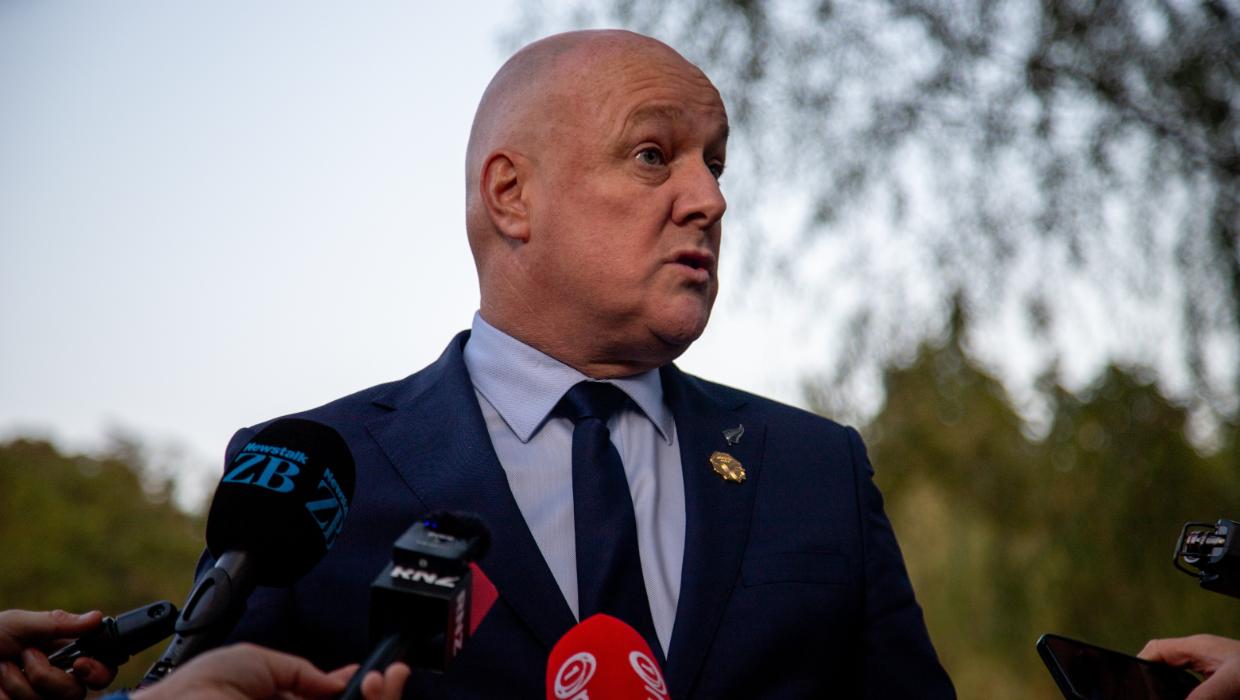Politics
Luxon Urges Restraint as Trump Signals Nuclear Testing Resumption

Prime Minister Christopher Luxon has voiced strong opposition to the potential resumption of nuclear testing by the United States, following remarks from President Donald Trump indicating that testing could resume “immediately.” This announcement came just before Trump’s scheduled meeting with Chinese President Xi Jinping at the Asia-Pacific Economic Cooperation (APEC) summit in Gyeongju, South Korea.
The U.S. has not conducted a nuclear test since 1992, and despite signing the Comprehensive Nuclear-Test-Ban Treaty in 1996, it has never ratified the agreement, leaving the treaty in a state of limbo. Luxon, who met with Trump for the first time on the evening prior, expressed New Zealand’s disapproval of any nuclear testing.
“We are a very proud anti-nuclear country,” Luxon stated. “That’s something we would discourage. Frankly, I think there are other ways you can test nuclear weapons than having to actually fire them.” He emphasized that New Zealand’s position against nuclear arms would be communicated “in due course,” as the country seeks to avoid a nuclear arms race.
Luxon pointed out that advancements in technology, such as computer modeling, provide alternative methods for testing nuclear capabilities without actual detonations. He refrained from speculating on the motivations behind Trump’s announcement, suggesting that media inquiries should be directed to the U.S. president himself.
New Zealand has a longstanding tradition of opposing nuclear testing. Historical actions include the ban on nuclear testing in its waters enacted by former Prime Minister Keith Holyoake in 1963, and the prohibition of nuclear-armed or powered ships by former Prime Minister David Lange in 1987. Successive governments from both major parties have consistently opposed nuclear testing in the Pacific region.
Luxon’s Busy APEC Agenda
Prime Minister Luxon’s agenda at APEC has been packed. He attended the official program’s kickoff and engaged in several high-profile meetings during his trip, which also includes visits to Malaysia. Earlier on the same day, he participated in formal bilateral discussions with leaders from Brunei, the United Arab Emirates, and Indonesia.
During a meeting with Indonesian President Prabowo Subianto, both leaders discussed enhancing trade relations between New Zealand and Indonesia, the largest country in Southeast Asia. Luxon expressed interest in visiting Indonesia to further strengthen these ties.
Additionally, he had an informal interaction with Japan’s new Prime Minister Sanae Takaichi, who took office just ten days prior. Luxon noted her enthusiasm during their brief conversation, highlighting the significant events she has already navigated, including a visit from the U.S. President and the facilitation of a trade deal.
As the APEC summit continues, Luxon’s interactions with world leaders underscore New Zealand’s commitment to its anti-nuclear stance and its proactive approach to international relations.
-

 World3 months ago
World3 months agoTest Your Knowledge: Take the Herald’s Afternoon Quiz Today
-

 Sports3 months ago
Sports3 months agoPM Faces Backlash from Fans During Netball Trophy Ceremony
-

 Lifestyle3 months ago
Lifestyle3 months agoDunedin Designers Win Top Award at Hokonui Fashion Event
-

 Sports3 months ago
Sports3 months agoLiam Lawson Launches New Era for Racing Bulls with Strong Start
-

 Lifestyle3 months ago
Lifestyle3 months agoDisney Fan Reveals Dress Code Tips for Park Visitors
-

 Health3 months ago
Health3 months agoWalking Faster Offers Major Health Benefits for Older Adults
-

 World3 months ago
World3 months agoCoalition Forms to Preserve Māori Wards in Hawke’s Bay
-

 Politics3 months ago
Politics3 months agoScots Rally with Humor and Music to Protest Trump’s Visit
-

 Top Stories3 months ago
Top Stories3 months agoUK and India Finalize Trade Deal to Boost Economic Ties
-

 Entertainment3 months ago
Entertainment3 months agoExperience the Excitement of ‘Chief of War’ in Oʻahu
-

 World3 months ago
World3 months agoHuntly Begins Water Pipe Flushing to Resolve Brown Water Issue
-

 Science3 months ago
Science3 months agoNew Interactive Map Reveals Wairarapa Valley’s Geological Secrets









